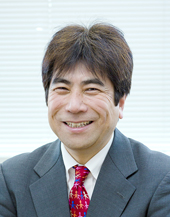- *This event has finished.
- Date: Wednesday, November 4, 2015, 7:00-8:30 pm
- Venue: Lecture Hall, International House of Japan
- Lecturer: Marie Söderberg (Director, European Institute of Japanese Studies; Professor, Stockholm School of Economics)
- Commentator & Moderator: Katsuma Yasushi (Professor, Waseda University)
- Language: English (without Japanese interpretation)
- Admission: 1,000 yen (Students and Non-Japanese: 500 yen, IHJ Members: Free) (reservations required, seating: 100)
The year 2015 is in many ways a crucial one for foreign aid. The Millennium Development Goals are expiring soon, and the post-2015 development agenda “Transforming our world: the 2030 Agenda for Sustainable Development” has been adopted at the United Nations recently. During this critical year, Japan has also revised its Official Development Assistance (ODA) Charter. It no longer talks about ODA; instead it has adopted a Development Cooperation Charter. The new Charter, which states that aid is necessary among some of the more developed countries as well, has a strong emphasis on Japan’s national interests and is designed to balance security and development. Moreover, it urges a stronger position for private companies and allows further cooperation with many other countries. Asia―the ASEAN region in particular―is highlighted, due to its high relevance for Japan’s own security and prosperity. In this way, the new Charter utilizes foreign aid as a political and diplomatic tool, rather than a means for poverty reduction. This lecture will trace the development as well as the implications of the new Charter.
Marie Söderberg
 Marie Söderberg is the director of the European Institute of Japanese Studies and a professor at the Stockholm School of Economics. She also holds a position as a research professor at Osaka University. She received a Ph.D. from Stockholm University in 1986, and the title of her thesis was “Japan’s Military Export Policy.” The central focus of her research is Japanese foreign aid policy, which she has written widely on, including Japan-China, Japan-North Korea, and Japan-South Korea relations. Prof. Söderberg is a board member of the Swedish Institute of International Affairs, and is also the senior editor of the European Institute of Japanese Studies, East Asian Economics and Business Studies, a book series published by Routledge in London and New York. She is also the chairperson of EJARN’s (European Japan Advanced Research Network) executive committee.
Marie Söderberg is the director of the European Institute of Japanese Studies and a professor at the Stockholm School of Economics. She also holds a position as a research professor at Osaka University. She received a Ph.D. from Stockholm University in 1986, and the title of her thesis was “Japan’s Military Export Policy.” The central focus of her research is Japanese foreign aid policy, which she has written widely on, including Japan-China, Japan-North Korea, and Japan-South Korea relations. Prof. Söderberg is a board member of the Swedish Institute of International Affairs, and is also the senior editor of the European Institute of Japanese Studies, East Asian Economics and Business Studies, a book series published by Routledge in London and New York. She is also the chairperson of EJARN’s (European Japan Advanced Research Network) executive committee.
Katsuma Yasushi
 Katsuma Yasushi is the dean of the Graduate School of Asia-Pacific Studies (GSAPS), director of the Institute of Asia-Pacific Studies (WIAPS), and deputy dean of the Faculty of International Research & Education (FIRE) at Waseda University. He also serves the Japan Society for International Development (JASID) as a vice-president and the Japan Association for United Nations Studies (JAUNS) as a director. Prior to joining Waseda University, he worked for UNICEF in Mexico, Afghanistan/Pakistan and Tokyo. Previously he was a consultant for Japanese ODA, conducting research in South & Southeast Asia and Latin America. Prof. Katsuma received his Ph.D. from the University of Wisconsin-Madison; LL.M. & LL.B. from Osaka University. His fields of specialization are development studies (human development), international human rights studies (child rights), and human security studies. His publications in English include East Asia and the United Nations: Regional Cooperation for Global Issues (2010, co-edited); The Role and Challenges of Japanese NGOs in the Global Health Policymaking Process (2009, co-authored).
Katsuma Yasushi is the dean of the Graduate School of Asia-Pacific Studies (GSAPS), director of the Institute of Asia-Pacific Studies (WIAPS), and deputy dean of the Faculty of International Research & Education (FIRE) at Waseda University. He also serves the Japan Society for International Development (JASID) as a vice-president and the Japan Association for United Nations Studies (JAUNS) as a director. Prior to joining Waseda University, he worked for UNICEF in Mexico, Afghanistan/Pakistan and Tokyo. Previously he was a consultant for Japanese ODA, conducting research in South & Southeast Asia and Latin America. Prof. Katsuma received his Ph.D. from the University of Wisconsin-Madison; LL.M. & LL.B. from Osaka University. His fields of specialization are development studies (human development), international human rights studies (child rights), and human security studies. His publications in English include East Asia and the United Nations: Regional Cooperation for Global Issues (2010, co-edited); The Role and Challenges of Japanese NGOs in the Global Health Policymaking Process (2009, co-authored).